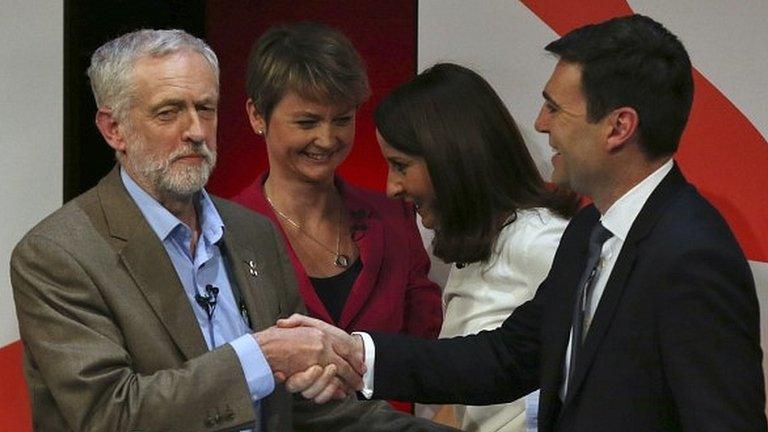Labour Party could split under Jeremy Corbyn, Yvette Cooper says
- Published
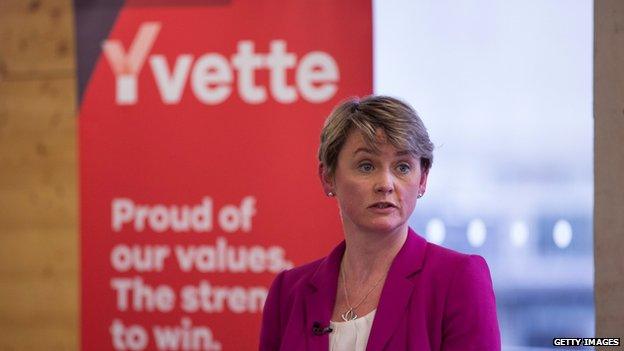
Yvette Cooper told the BBC the party appeared to be "polarising" between extremes
The Labour Party could end up splitting if Jeremy Corbyn is elected leader, Yvette Cooper has claimed.
Ms Cooper, who is standing against Mr Corbyn for the leadership, also said the party appeared "to be polarising" between "different extremes".
But Mr Corbyn pledged to use the backing of party members to force party MPs to support his agenda if elected.
Polls suggest he is frontrunner in the race. The other candidates are Liz Kendall and Andy Burnham.
The new leader will be announced on 12 September.
Everything you need to know about the four candidates hoping to become the next Labour leader
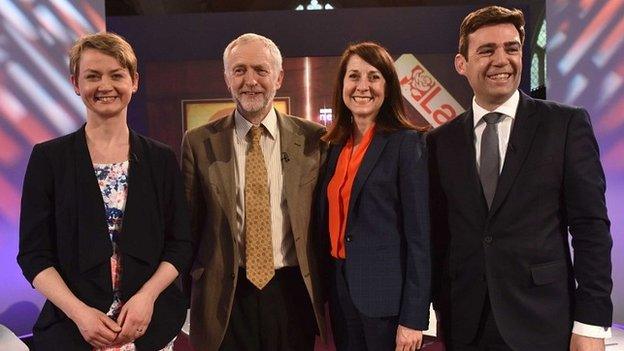
Mr Corbyn, second from left, has not been a team player, said Ms Cooper, far left
A number of Labour MPs have warned about the impact of Mr Corbyn winning the leadership.
But Corbyn supporters have said he is most likely to appeal to non-Labour voters.
Ms Kendall indicated she may be willing to join the Labour for the Common Good group, which also includes Chuka Umunna and Tristram Hunt, and is seen as a potential resistance faction against a Corbyn leadership.
Praising the group, she said: "It's a great idea. If I'm invited I would certainly go along."
Mr Burnham has previously said he would serve in a Cabinet led by Mr Corbyn.
'Change the country'
Speaking to BBC Radio 4's the World at One, Ms Cooper said Mr Corbyn had "not shown any ability" to be part of a team, pointing to his decision to vote against the party whip on hundreds of occasions.
Asked if she was worried if the party could split if he wins, she said: "I am, because I'm worried what's happening at the moment, that the party does seem to be polarising between the different extremes and I don't think that is the right thing to do.
"Partly, we want to hold our party together in order to win. Divided parties don't win, but it's actually much more than that. I just don't think the extremes of the party are the right place to be and are true to our values and are true to the things we need to do to change the country for the future."
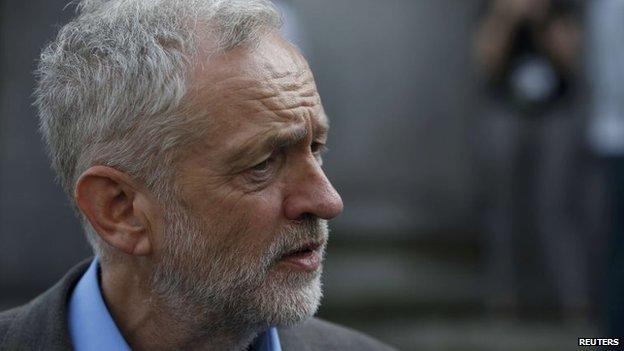
Mr Corbyn said he wanted to see "real democracy" in the party
Ms Cooper said it was "very unlikely" she would serve in the shadow cabinet under Mr Corbyn.
She said she would find it "really hard" to do so "unless he completely changes his views on some big things which doesn't look very likely at the moment."
Mr Corbyn, meanwhile, pledged to use the backing of party members to force Labour MPs to support his agenda if he is elected leader.
Speaking to the Independent newspaper, external, he said he would "absolutely" use support from the membership "to push our agenda up to the parliamentary party and get them to follow that."
He said MPs are "not the entirety of the Labour Party", adding: "I want to see real democracy so this election gives a very strong mandate for change within our society."

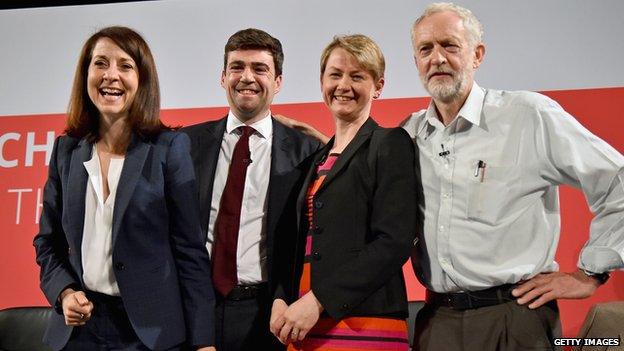
Leadership contenders: Liz Kendall, Andy Burnham, Yvette Cooper and Jeremy Corbyn
Labour leadership contest
Who are the candidates? Andy Burnham, Yvette Cooper, Jeremy Corbyn, Liz Kendall
Dates: Ballot papers were sent out on 14 August; voting can take place by post or online. They must be returned by 10 September. The result is announced on 12 September
Who can vote? All party members, registered supporters and affiliated supporters - including those joining via a union. More than 160,000 people signed up to vote as supporters, full members or union affiliates in the final days before the registration deadline, bringing the total size of the electorate to 610,000
What is the voting system? The Alternative Vote system is being used, with voters asked to rank candidates in order of preference
How does it work? If no candidate wins outright with more than 50% of first preferences, whoever is in fourth place drops out and the second preferences of their backers are reallocated to the other candidates. If there is still no winner the third placed candidate is then eliminated with their second preferences similarly reallocated. The candidate who has accumulated the most votes through the different rounds then wins.
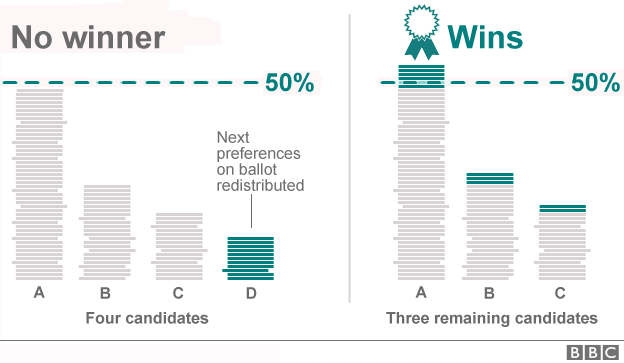

- Published20 August 2015
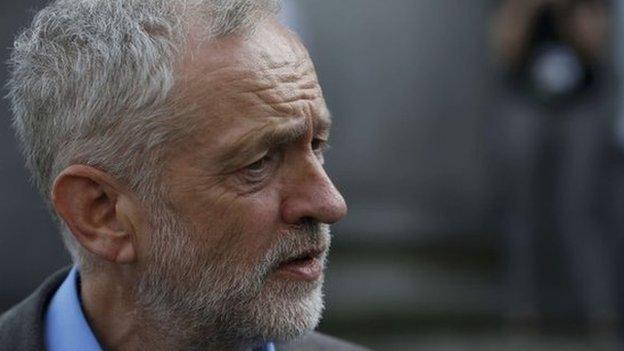
- Published20 August 2015
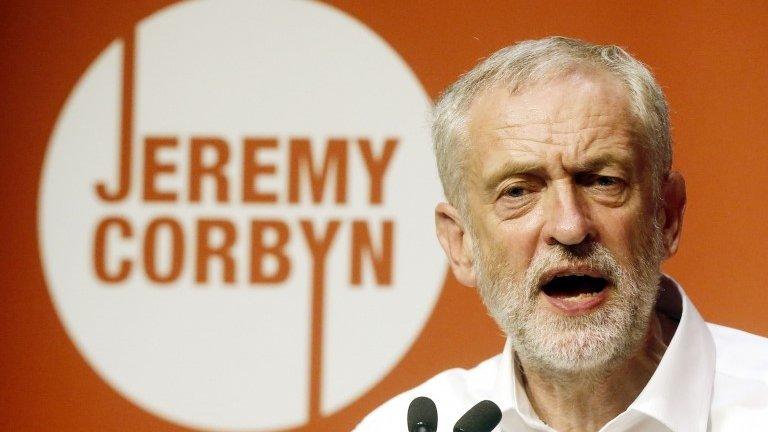
- Published19 August 2015
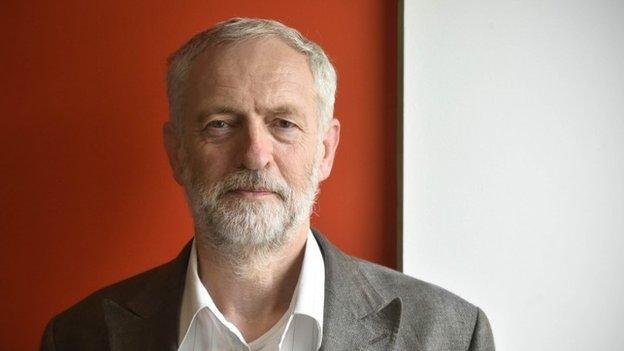
- Published19 August 2015
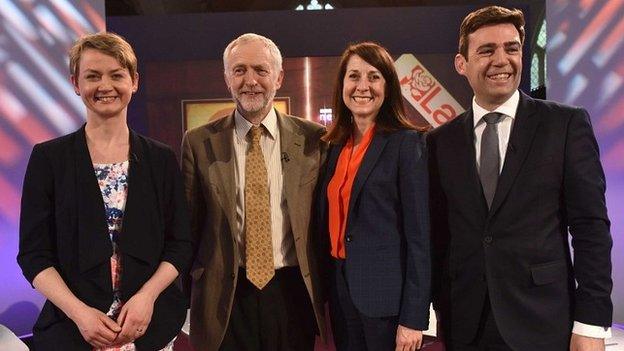
- Published12 September 2015
